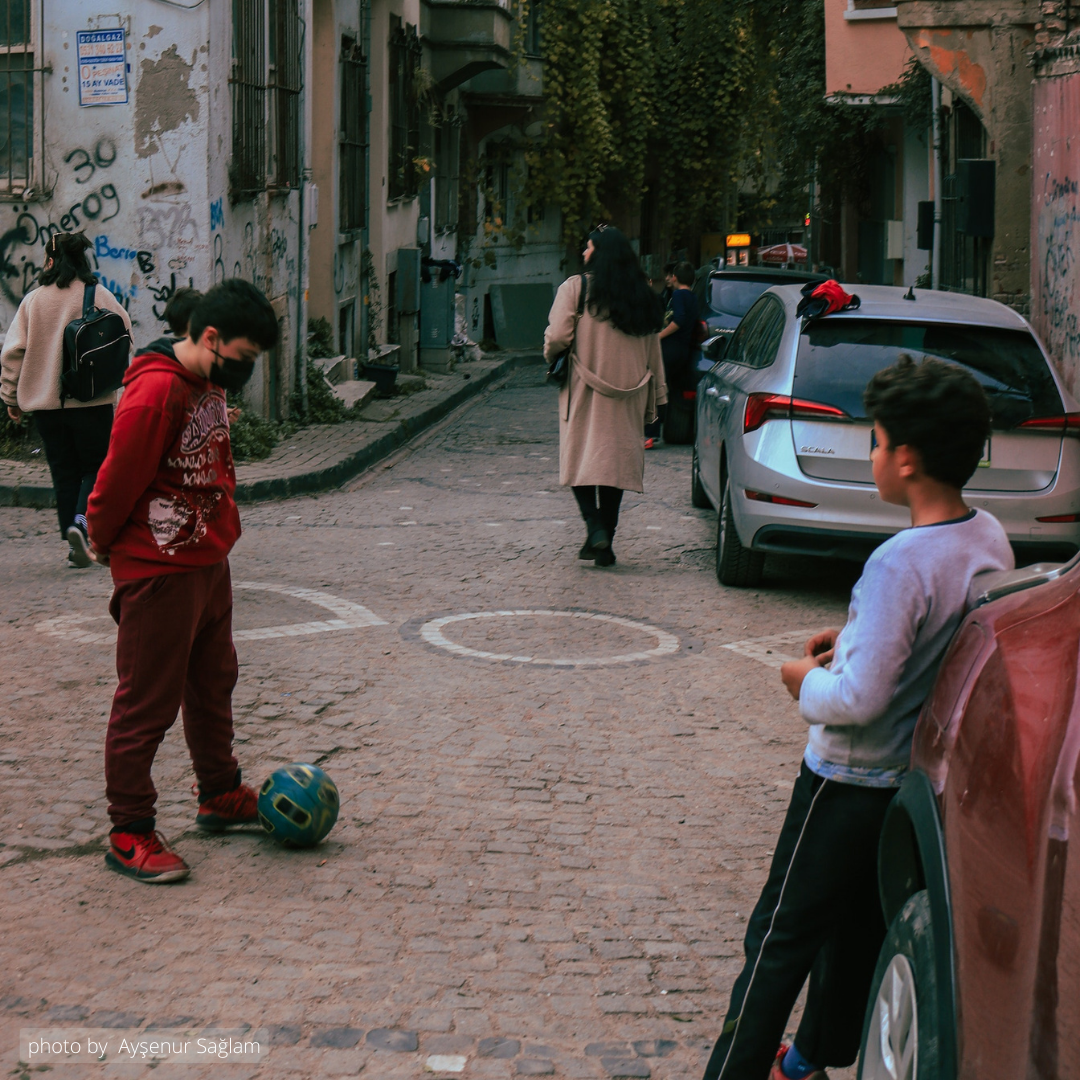
Gender norms that place boys as ‘strong’ and ‘able to protect themselves’, means that there is an assumption that they are invulnerable to sexual exploitation and abuse. Not only do these rigid gender norms contribute to boys’ reluctance to disclose sexual violence, or seek help, but they also reinforce self-blame and shame of the male victims.
Additionally, the long-held taboos associated with discussing sex and sexuality that are deeply entrenched in Moroccan culture perpetuate an environment of silence, which further discourages boys from opening up about their experience(s) of sexual exploitation.
“It is important to encourage males to report and to negate the notion that only girls are victims of such crimes. This does not emasculate them in any way.”
~ frontline worker
Any child, regardless of socio-economic background, can be subjected to sexual exploitation. However, frontline workers in Morocco identified poverty as one of the key risk factors for boys. In 2018, a UNICEF study estimated that around 42% of children in Morocco suffer from moderate to acute levels of poverty.
Boys experiencing poverty may be forced to drop out of school and/or live, work, or spend time on the streets, where they may end up involved in street-based prostitution at public places.
In some cases, boys and/or their families might be pushed into migration with the hope of seeking work. Research has shown that in such situations, they are likely to be involved in child labour and at risk of exploitation and violations.


Shelter, care, and reintegration support are some of the support services integral to boys who have been sexually exploited. However, the absence of dedicated support and reintegration programmes for child victims of sexual exploitation in Morocco continues to hamper their psychosocial recovery and social reintegration.
Frontline workers overwhelmingly rated existing psychological and reintegration services for boys as poor. Primarily due to a lack of resources, insufficient legislation on the issue, and a lack of awareness and training, more needs to be done to protect boys and/or their families. Suggestions to overcome these constraints were largely focused on creating specialised units to support child sexual exploitation victims and capacity-building programs for professionals.
Morocco has made some progress in legislatively addressing the sexual exploitation of children by ratifying key international instruments and introducing the Integrated Public Policy for Child Protection 2015-2025, to fill gaps in current child protection policies.
However, the presence of gender bias in some laws means that boys are afforded less protection than girls within the current legal system. As outlined in Article 486 of the Penal Code, rape is strictly defined as an offence committed by a man against a woman. This means that boys and men cannot be recognised as rape victims in the eyes of the law, and may be ineligible to receive any protective measures or programmes specifically designed for rape victims.
The Morocco Boys study found that discriminatory laws and inadequate support services are preventing boys from being recognised as victims. They are being denied their right to recovery and reintegration support.

Some recommendations outlined in this report include:
How was this research conducted?
ECPAT International’s tenth report under the Global Boys Initiative, conducted together with AMANE, looks at the sexual exploitation of Boys in Morocco and explores how interlocking vulnerabilities, cultural taboos, and rigid gender stereotypes place boys at risk of sexual exploitation and abuse. The report identifies gaps in child protection legislation and support services, and provides recommendations for action.
Our research included a detailed survey with 36 frontline service workers in Morocco who currently provide services for child victims of sexual exploitation. A comprehensive analysis of the Moroccan legal framework was conducted to understand how it protects boys from crimes relating to sexual abuse and exploitation.
Learn about the Global Boys Initiative in India, Bolivia, The Gambia, Belgium, Pakistan, Hungary, Thailand, South Korea, and Sri Lanka.

Read: Poverty is pushing boys in India into sexual exploitation
Read: Boys in Bolivia face barriers to opening up about their abuse
Read: Laws and ideas on gender are putting boys in The Gambia at risk of sexual exploitation
Read: Are Boys in Belgium sufficiently protected from sexual exploitation?
Read: Boys in Pakistan are subjected to harmful social and gender norms
Read: Boys in Hungary are rarely perceived as victims of sexual exploitation
Read: Boys in Thailand would stop selling sex if they could
Read: Boys in South Korea don’t know who to tell when they’ve been sexually abused
Read: Boys in Sri Lanka have little choice but to adapt to abuse
About ECPAT’s Global Boys Initiative
Listen:
Comment, like and share to help us get the word out! #ECPATBoysStudy
Twitter | Facebook | Instagram | Linkedin